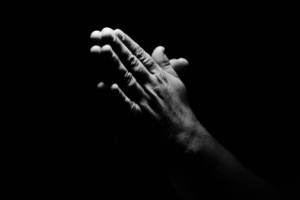Religion and Morality
 A recent study in Science reveals some potentially surprising findings about our understanding of morality. As it turns out, individuals who identify themselves as religious are no more “moral” in their day-to-day behavior than individuals who don’t identify as being religious. The study, conducted with over 1,200 people, required participants to receive five random texts throughout the day in which they were asked if they’d committed, experienced, or heard moral or immoral acts in the previous hour. If the participant answered “yes,” they were then asked follow-up questions requesting a description of the event and the participant’s reaction to it.
A recent study in Science reveals some potentially surprising findings about our understanding of morality. As it turns out, individuals who identify themselves as religious are no more “moral” in their day-to-day behavior than individuals who don’t identify as being religious. The study, conducted with over 1,200 people, required participants to receive five random texts throughout the day in which they were asked if they’d committed, experienced, or heard moral or immoral acts in the previous hour. If the participant answered “yes,” they were then asked follow-up questions requesting a description of the event and the participant’s reaction to it.
Whereas numerous morality studies which have been done over the years relied heavily on laboratory experiments and hypothetical scenarios or dilemmas, this study invites data, in real time, from participants involved in actual, non-controlled settings. The method, known as “ecological momentary assessment,” heavily relies upon self-reported data; however, the researchers believe these findings offer up unique perspective in the study of morality. Daniel Wisneski, one of the study’s collaborators, indicated that heightened ecological validity was one of the study’s goals.
Interestingly enough, the biggest difference the study found between religious and nonreligious individuals was that individuals who identified themselves as religious felt much stronger levels of emotions like shame or gratitude when evaluating immoral and moral acts.
Critics of the study point to the requirement for relying upon self-reported data which Wisneski agreed to be a valid concern; however, study collections showed evidence that many participants were forthcoming of far more taboo acts of immorality such as adultery. Defining acts as “moral” or “immoral” was also left up to the participants. By not defining how to categorize acts upfront, the researchers allowed for an opportunity to not only get valuable feedback on reactions to moral and immoral behavior, but also how individuals defined these acts, as well.
The researchers utilized judges to rate received texts to check for consistency in moral versus immoral interpretations and, remarkably, the judges independently found that there was a significantly high amount of agreement when defining the categorization of reported acts.
Essential to the heart of the study’s findings is the reality that one’s religious affiliation does not have a direct impact on one’s ability to better recognize and categorize moral and immoral acts, nor does it directly show evidence of a heightened ability to abstain from immoral acts, either.
So what does this mean for followers of the Universal Life Church and other denominations? It shouldn’t mean much. As has been clearly stated from numerous pulpits, religion does not provide followers with a right to judge others or consider themselves to be more morally-upright than nonbelievers. In fact, followers should understand better than anyone else, that it is not their right to judge others and should only enact judgement upon their own actions while trying to lead a more morally-upstanding life.
It is curious then that we see some folks taking aim at the freedom of others out of moral judgment, such as banning marriage equality and restricting access to or coverage for family planning services. These people are viewing the holding of religious beliefs as an entitlement to determine the moral worth of the actions of others. This of course is the wrong reason to be religious, bad sadly, not altogether uncommon.
This study reiterates the commonality of people, regardless of affiliations, and should be a great reminder that involvement in the church does not make individuals better than those who do not attend, but, instead, allows for opportunities to grow and continue to consciously work to make better decisions with each day’s choices of morality. Whether an individual chooses to get ordained or neglects to ever step foot into a religious service, it is not for them to discern others’ morality.














